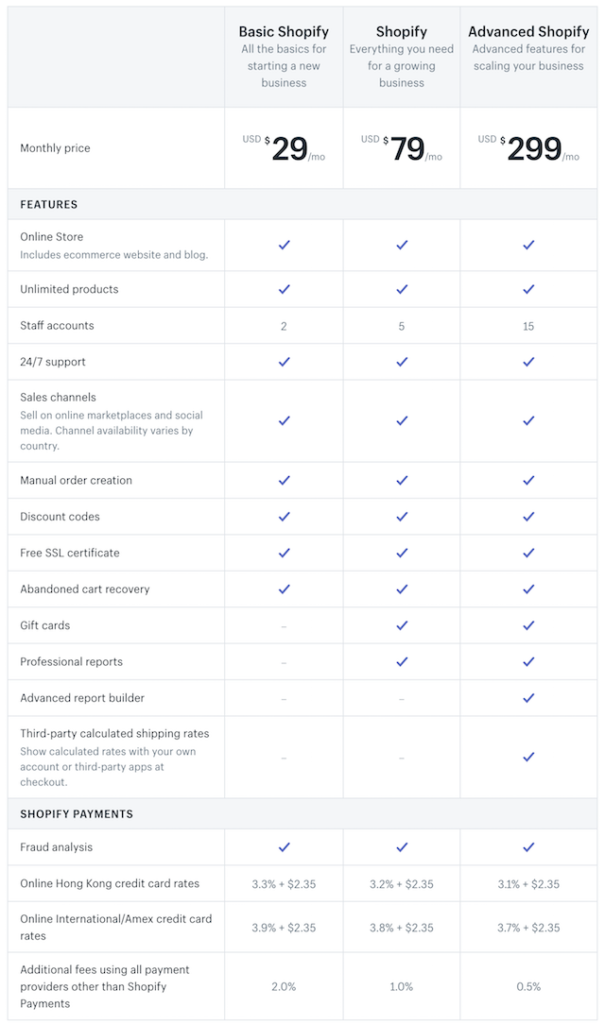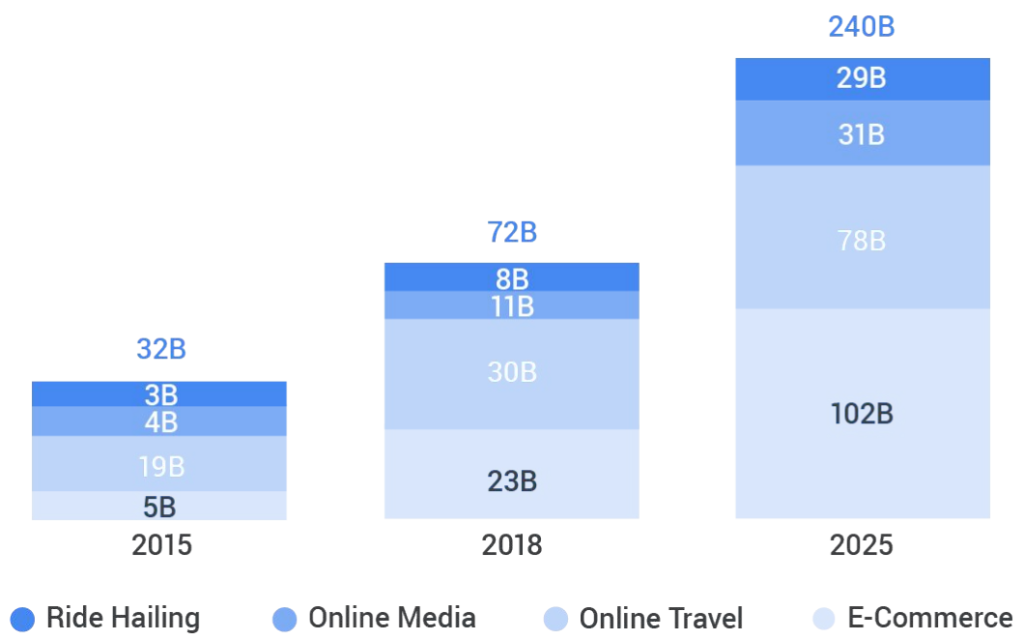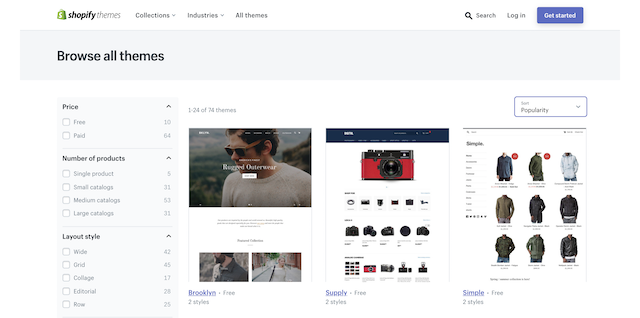Shopify is a well-known e-commerce store builder that makes it easy for you to launch your e-shop in Asia – without having coding skills.
While there are alternatives available, Shopify is one of the most popular, largely thanks to the useful features that the company offers, that will meet the needs of small start-ups as well as the ones largest groups have.
The rise of e-commerce in Asia
While many companies still develop their online store from scratch, most are now using this type of solutions since it represents a straightforward way to have a ready-to-use platform that sells. Shopify, with 18 per cent market share according to Build With, is the second store builder behind WooCommerce, the famous e-commerce extension for WordPress.

If WooCommerce is an extension for WordPress, the world leading CMS (Content Management System), Shopify is considered as an “all-inclusive” solution to create an online shop and requires less technical knowledge thanks to the packages it offers.

Shopify provides basic to advanced packages that offer more whistles and bells and they all include the most important features an online platform needs to operate: hosting, catalogue, cart, fraud analysis, sales channel and 24/7 support. For an affordable monthly fee, entrepreneurs can now benefit from a professional platform that will convert while building a store was more time and budget consuming over the past few years.
E-commerce is a global phenomenon, and the Asian market has a high potential for growth. Indeed, it has been estimated that the e-commerce sector will be worth around US$102 billion in Southeast Asia by 2025, 4.4 times more than during last year.

As such, there are plenty of opportunities in Asia to develop an online business. However, if the process is easier than before, it implies involvements and dedication, and Shopify represents a great solution to make it happen thanks to affordable packages and features that will help business owners to have the main features covered.
Get started with Shopify
Identity
When you build a store, it is important that you also build a brand. This will you to create a community around your products, encouraging your customers to become loyal to your brand by spreading a positive image.
When you start building your site with Shopify, you will have a number of themes to choose from.

These themes will give you the basic layout of the store, and you can customise the themes to your liking. This is where you first begin to develop your brand in your store:
- Colours: Many of the most successful e-commerce stores have a recognised colour theme. Remember to try and keep the colours bright and inviting, without going over the top since colours can affect the mood of your store:
- Blue: Use blues to generate feelings of competence, honesty and reliability. Blues are ideal for stores with a corporate theme.
- Black: Black will help to give your store a sophisticated edge. This will be best suited to stores selling luxury, high-end products.
- White: White will help to make your store feel clean and pure. It is perhaps the most common colour, partly because it helps give sites a simple-to-use feel.
- Red: Red inspires warmth and excitement. It is a colour that needs to be used carefully but can help generate the right emotions when used on the right site.
- Logos: A logo will help your shoppers to instantly recognise your brand. Have a look online and you will find various tools that will help you create your own logo, including those like hatchful which are easy and free to use.
- Images: Choose your images carefully because they are very effective at catching the reader’s attention and channelling the right emotions.
Hosting & domain name
In short, a host is where your site will be kept, while also allowing people access to it from the internet. In Shopify, this is done for you, but you will need to choose your own domain name and there are few best-practises to choose the right one:
- Keep it easy to remember. You want visitors to remember where you are so they can find you again and tell others where to find you.
- Keep it related to your business. The domain name itself can let people know what your store is about. For example, it is quite clear what shoes.com will be selling. This can also help with SEO.
- Keep it brandable. A catchy, relevant name can be very valuable when it comes to marketing.
- Choose the right extension. The most popular domain extension is “.com”. If you want a different extension, or if the one you want is not available, then choose one that is related to your market like “.hk” or “.com.hk” for Hong Kong or “.sg” or “.com.sg” for Singapore.
Marketing
When you have something to sell, you need to attract people that will buy. The good news is that Shopify offers a range of features that help you to do that, especially thanks to apps that you can add to your store.
E-commerce stores have various methods to communicate with their clients. Here are the main ones you can use to drive potential customers to your shop:
- Content Marketing: Content marketing is a great opportunity for you to communicate directly with your targets, while indirectly promoting your business. When done right, content marketing allows you to make connections between your brand and the people that have an interest in what you are selling. Writing guides about the products you sell, developing a blog and working on your own story-telling are among the best-practices to create fresh content while helping users knowing you better.
- Paid Ads: Traditional advertising is too expensive for many young businesses but online ones, when done right, can help to attract your first visitors. In Asia, you have different solutions according to the market your target. While most of the countries will rely on Google Adwords or Facebook Ads, Wechat Ads will be your main interest if you are about to target Mainland China.
- SEO: Search engine optimisation represents a free way to develop your audience but unlike paid ads, it might take some time to be efficient since search engines need to trust your website before increasing its rankings. Shopify offers features to improve your SEO and work on making the platform compliant with Google’s latest trends.
- Social Media: Asians are highly connected and social media represents unmissable opportunities for communication. Used right, it can help you let people know who you are and what you have, while it can also help you to get to know your customers better. Develop a presence on social media and you will be able to develop a brand following that will help drive your business to success.
- Newsletters: Building an email list is one of the best ways to keep in touch with your customers as well as to let them know when you have new products or discounts they might be interested in. Shopify offers solutions to build your list as well as to send EDMs thanks to apps you can add to your online store.
With such a large market that looks set for future growth, it is no wonder that so many businesses and entrepreneurs are looking to get involved in Asia’s e-commerce sector. Platforms such as Shopify are making sure that their presence is noticed, letting people know that they have a platform that can be a key to success. It is easy to get involved and, with enough work, anybody can be a successful e-commerce store owner.






